Thing 1 – Penguin
Readers of a certain vintage and comic persuasion might be acquainted with the book ‘Why A Duck?’ It simply comprises a selection of script excerpts from Marx Brothers films, illustrated with stills from those scenes. As a child indoctrinated into the Marxist cult from an early age, this book was a source of much joy – especially as screenings of the films in the 1970s weren’t as regular as you might think (a quick search of the BBC Genome Project yields just five results for ‘Marx Brothers night at the opera’ between 1970 and 1980, and three of those screenings were, inexplicably, way past my bedtime).
The name of the book, as any Marx Brothers nerd will know, was taken from this scene (not, in truth, one of my very favourites, but there is a persuasive school of thought that says ‘any Marx Brothers clip is better than no Marx Brothers clip’) in The Cocoanuts:
Sidebar: I’ve just spent 15 minutes looking up where The Cocoanuts sits in the Marx Brothers pantheon – somewhere in the middle, according to most lists. While opinion is divided as to whether the best is Duck Soup or A Night at the Opera, there is universal agreement that Love Happy is the worst – I wouldn’t know, as I was warned off it by my Marxist parents at an early age, and have never felt the need to find out for myself.
Sidebar 2: when I say ‘Marxist’, you do know I don’t mean actual Marxists, yes?
Right, look, if we’re doing this, here is an actual favourite scene, because I can’t just bring up the Marx Brothers and leave you hanging, can I?
OK if you insist, just one more.
OH GO ON THEN. Honestly, you’re insatiable.
All this Marxism had quite innocuous origins. It was this article, entitled ‘Why A Penguin’. The pattern ‘Why a [BIRD NAME]’ triggered memories, with inevitable rabbit-holey results.
It’s worth reading that piece about the origins of the Penguin brand, not least because I suspect many people are unaware of Penguin’s avian predecessor (and inspiration) in the world of mass-market paperbacks. Albatross books, founded three years before Penguin in 1932, conformed to a basic colour scheme according to genre (red for crime, blue for romance, green for travel, purple for biographical/historical etc)
We take the simplicity of good design for granted. Likewise name choice. Penguins and albatrosses might differ in their flight capabilities, but they have much in common. They’re both birds (well duh), both eminently recognisable, both held in great affection by humans (although penguins have a tangible edge in that department because they are so easily anthropomorphisable). And from the point of view of international branding, they also share one crucial characteristic: they are basically the same in multiple languages. ‘Albatross’, in particular, is almost universal, while the outliers for ‘penguin’ (especially in Europe, where they had their primary market) are very few: Czech (tučňák), Slovak (tučniak), Icelandic (mörgæs), and – with a magnificent sort of perversity – French (manchot).
Mention of the word ‘penguin’ might have the Welsh among you jumping up and down.
‘Sir! Sir! ‘Penguin’ come from ‘white head’ in Welsh!’
Which brings us to:
Thing 2 – Etymology
If you’re after rainy Bank Holiday rabbit holes, look no further than etymonline.com – the online etymology dictionary.
Regarding the ‘Penguin’ etymology, I will merely point out that according to this fine resource, ‘the word itself is of unknown origin, though it often is asserted to be from Welsh’.
Look, I don’t want to start a fight – trust me.
Thing 3 – Trust
Talking of trust, this is a fascinating interactive exploration of the game theory of trust. Are you a cheat, cooperator, copycat, detective, grudger or simpleton?
Thing 4 – Tap
I’ve just spent a really enjoyable eight or so minutes watching Dulé Hill exploring the history of tap dancing, and think you should too.
Thing 5 – Islands
I’ve been meaning to include this for ages, so thanks to Jonathan for putting it in front of me this morning. The world’s 100 largest islands (it’s the work of @mapmakerdavid on Reddit).
Thing 6 – Cat
A charming, and – in the words of its creator Steve Chapman – utterly pointless project, (Not A) Lost Cat is… well, I’ll just let you read about it.




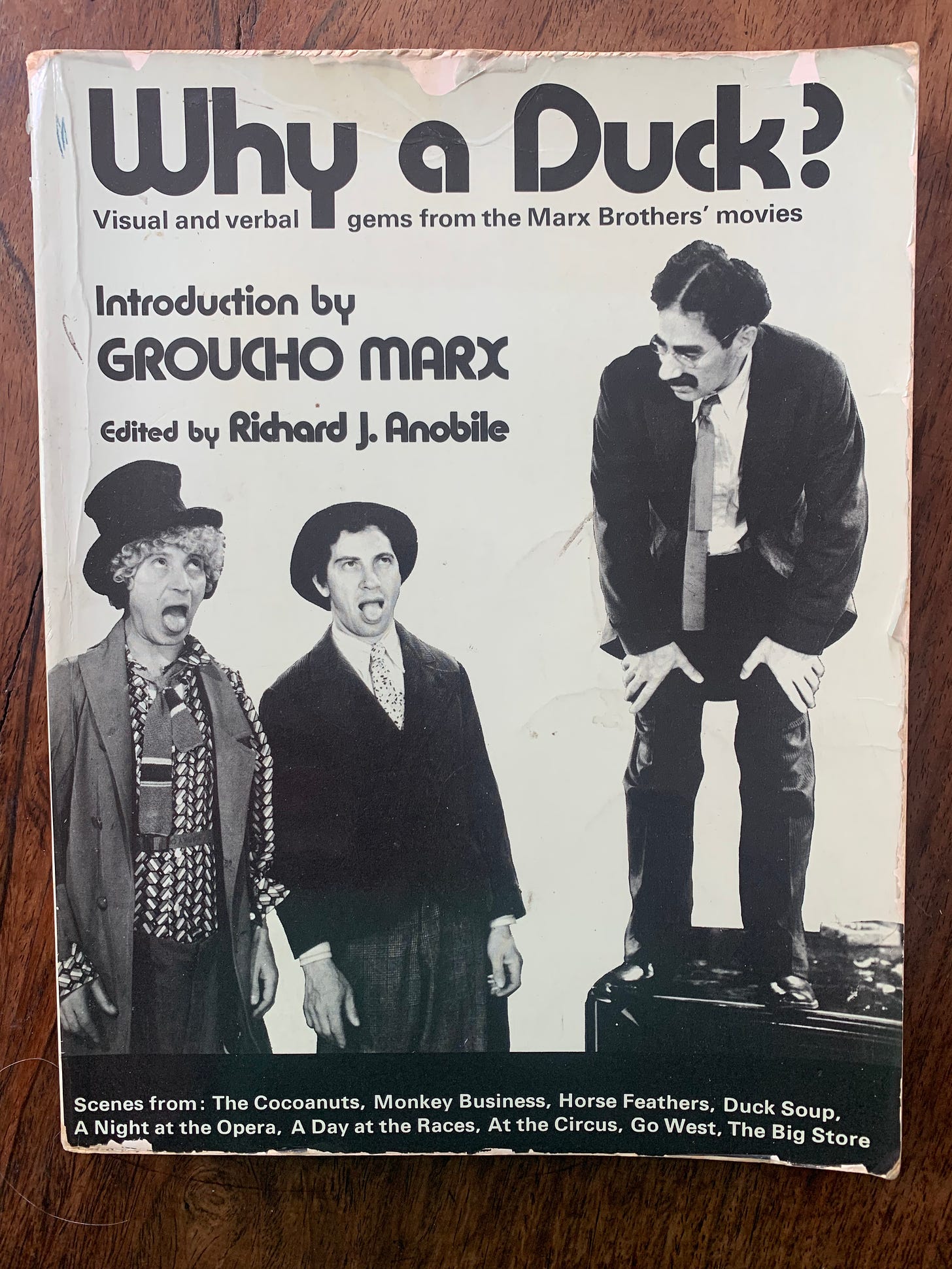
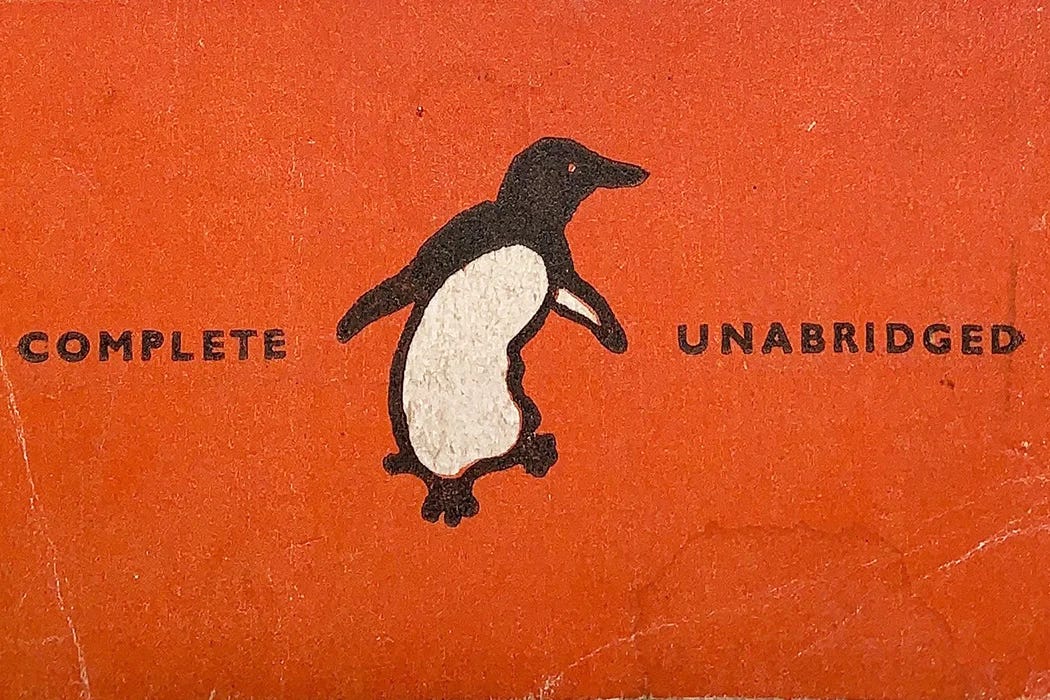
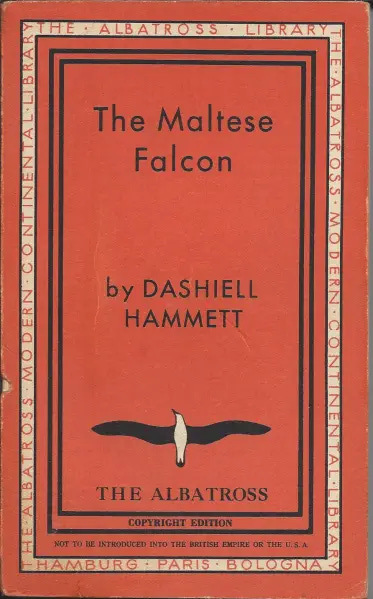
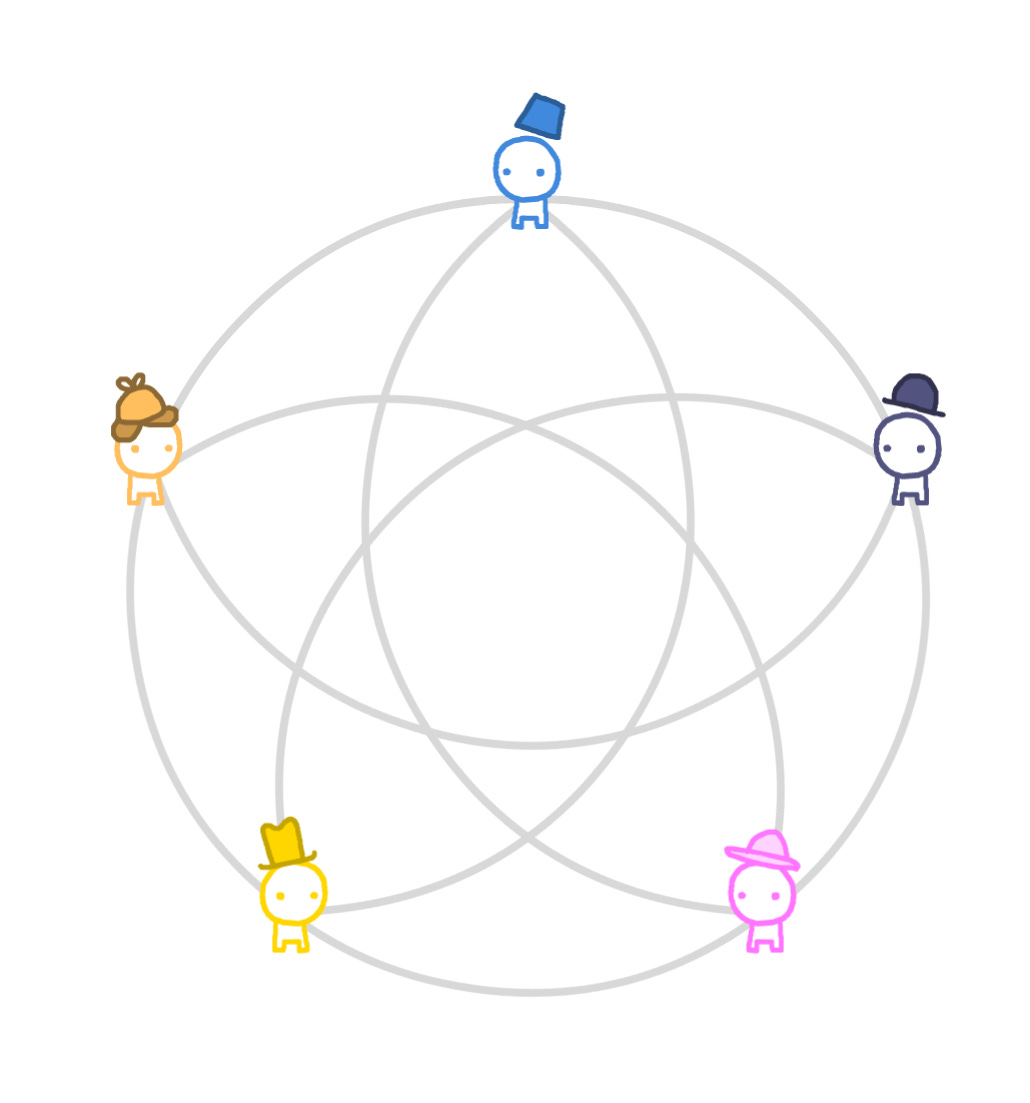
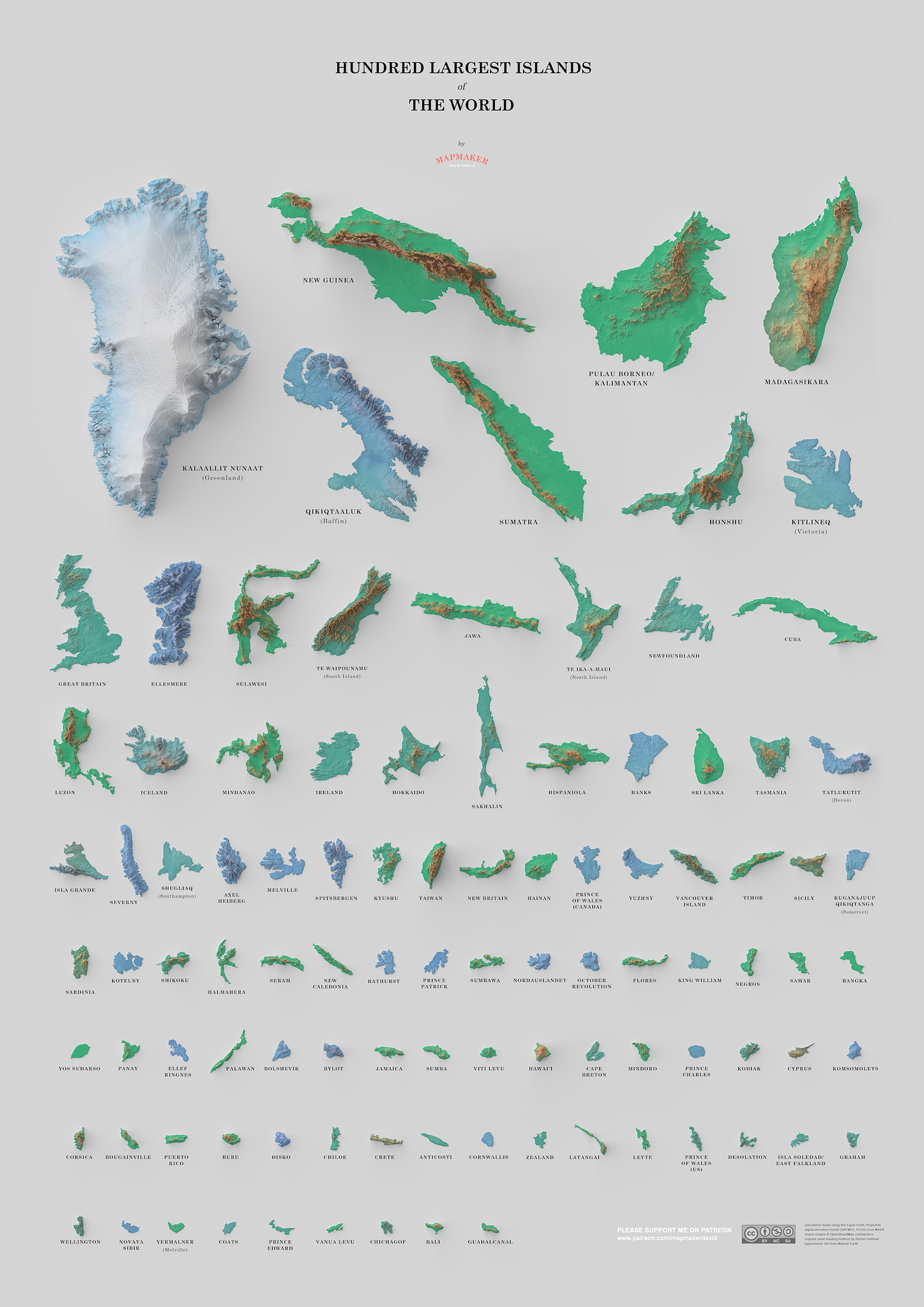
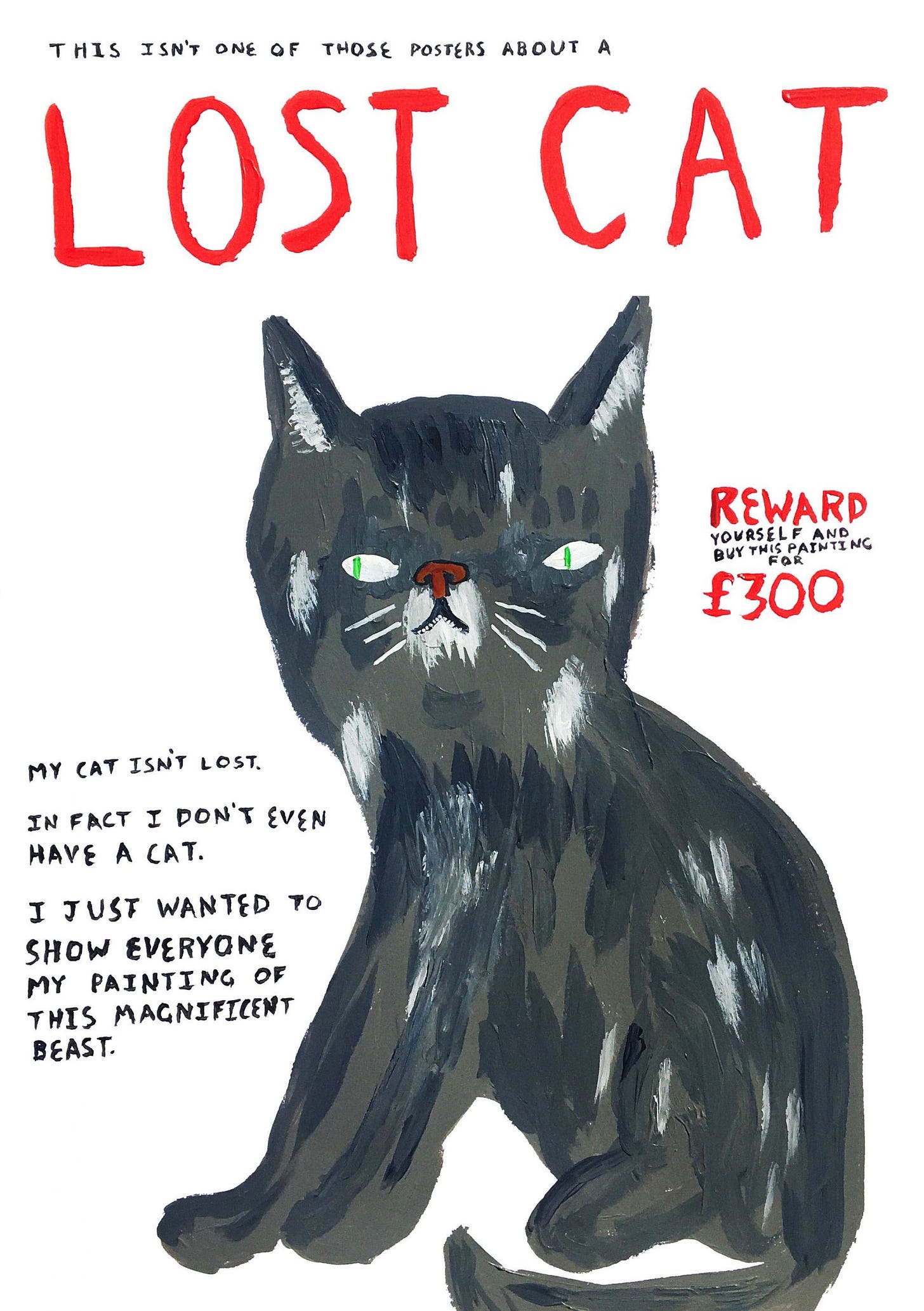
Oh My Life, Lev. How on earth have I managed to get to my age without knowing about the online etymology dictionary?!?!? My tools of procrastination are surely now complete! Thank you ...
You broke me with "anthropomorphisable." I keep trying (and failing) to say it aloud.